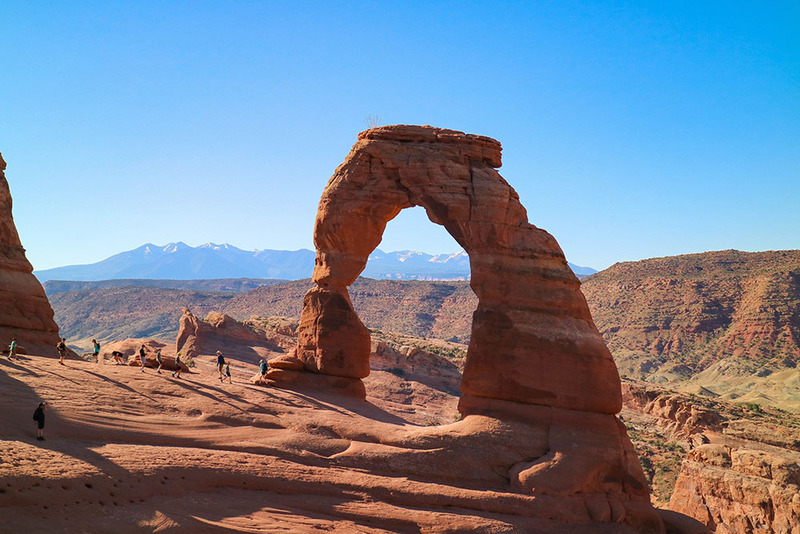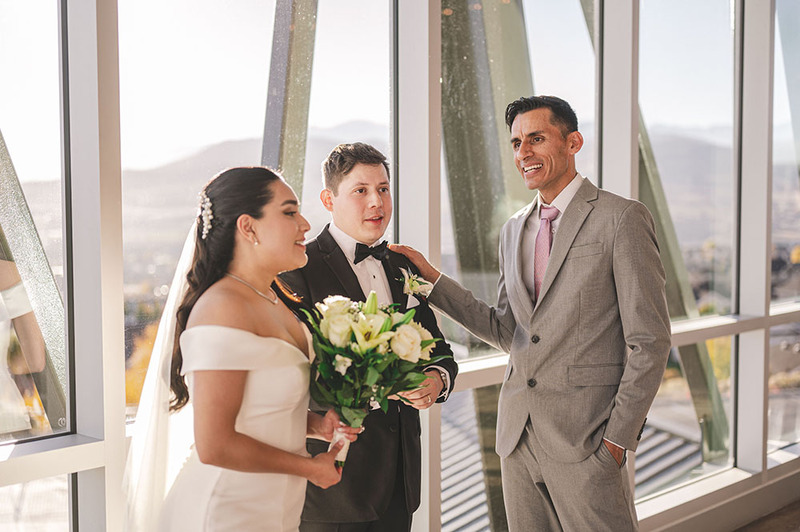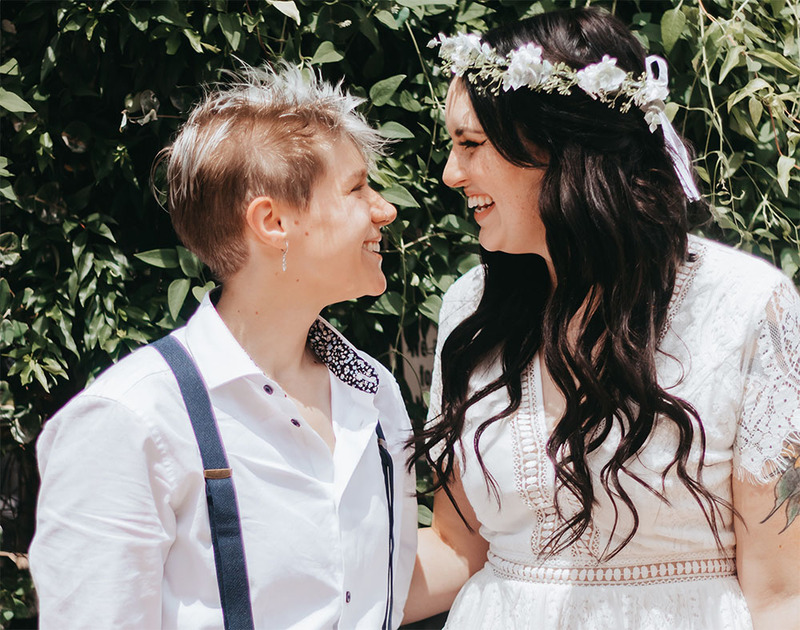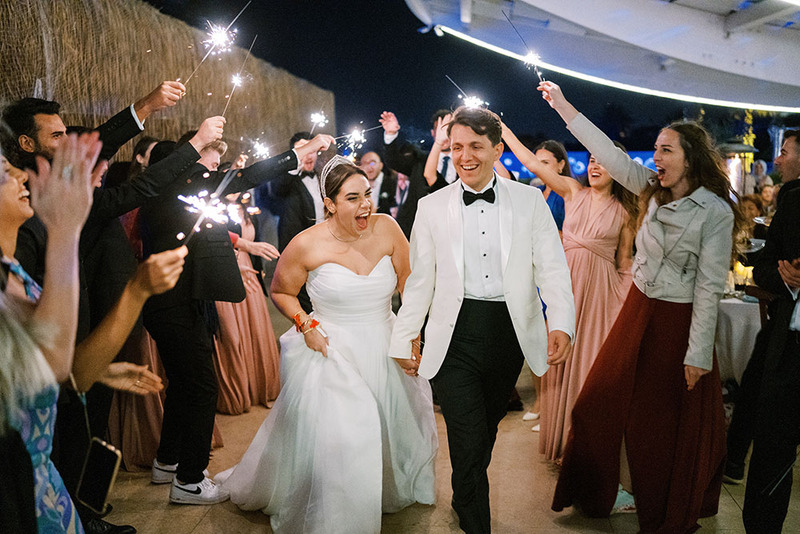AMERICAN WEDDINGS BLOG
Stay up to date with the latest wedding ceremony trends, script writing inspiration, tips and advice for first-time officiants, and news that matters to couples and wedding ministers.
Stay up to date with the latest wedding ceremony trends, script writing inspiration, tips and advice for first-time officiants, and news that matters to couples and wedding ministers.
Published Thursday, Jun. 22nd, 2023
Last updated Thursday, Jun. 29th, 2023

From red rock arches to gothic spires, Utah offers romantic backdrops for any kind of wedding ceremony.
Applying for a marriage license in this western state will look different in each county, so it’s important to get a head start on the planning process to avoid unnecessary stress. Utah is also unique in that it offers online weddings for couples living anywhere in the world, through Utah County’s virtual marriage portal.
With these special considerations in mind, we’ve compiled a short guide to help you begin.
Asked to officiate a wedding in Utah?

Want to get married near Arches National Park? This one-of-a-kind destination is only a short drive from the Grand County Clerk Auditor's Office in Moab!
Got one? Whew! There will be a few more boxes to check, but the hardest part’s over.
A wedding officiant is the person who conducts your ceremony and signs the marriage license, making things legal.
A friend or relative can perform your wedding ceremony if they’ve been ordained. If you plan to get married in a ‘remote appearance ceremony’ (a virtual or online wedding), your wedding officiant must be physically located within the State of Utah while officiating.
More information on Utah’s online wedding services: How to Get Married in an Online Wedding Ceremony in Utah
If you want to hire a professional officiant, the state has many qualified independent officiants to choose from. The following people are authorized to solemnize marriage in Utah, include ordained AMM Ministers:
(a) an individual 18 years old or older who is authorized by a religious denomination to solemnize a marriage; (b) a Native American spiritual advisor; (c) the governor; (d) the lieutenant governor; (e) the state attorney general; (f) the state treasurer; (g) the state auditor; (h) a mayor of a municipality or county executive; (i) a justice, judge, or commissioner of a court of record; (j) a judge of a court not of record of the state; (k) a judge or magistrate of the United States; (l) the county clerk of any county in the state or the county clerk's designee as authorized by Section 17-20-4; (m) a senator or representative of the Utah Legislature; (n) a member of the state's congressional delegation; or (o) a judge or magistrate who holds office in Utah when retired, under rules set by the Supreme Court. (Excerpt from § 30-1-6)
(Find more Utah marriage laws here.)

Photo: David Guerrero / Pexels
Choose an officiant who makes you feel comfortable and supported.
Utah’s landscape is truly a one-of-a-kind wedding backdrop, with otherworldly red rock formations and hundreds of miles of trails and rivers. Arches National Park, Zion Canyon’s scenic drive, The Great Salt Lake, and other treasures await for nature lovers, and popular destinations like Salt Lake City, Provo, St. George, and Moab offer five star dining and luxury accommodations for newlyweds in search of city comforts.
Whether you’re dreaming of a big to-do or a romantic elopement for two, there’s something for everyone!
Popular dates, venues, and officiants book up fast, so start early. And remember you’ll need permission (and a permit) to use a public space, such as a city park or recreational area. Permits can take weeks to process, so factor this into your timeline, too.
Utah Marriage License Quick Facts
No Waiting Period
32 Day Expiration Period*
30 Day Return Period
*License expires 32 days after the day on which the license is issued. However, several county websites state that couples must use a license within 30 days. To avoid confusion, speak with your local clerk directly.

Did you know? Every state has different laws governing when the marriage license is issued, can be completed, and must be returned. There are called a state's marriage license Waiting Period, Expiration Period, and Return Deadline. Learn more here.
Alright, time to make sure your wedding’s legal! We’ll break down each part of the marriage license process, one step at a time:
You’ll apply for your marriage license through the County Clerk’s Office. Some counties require an appointment.
Couples who wish to marry in Utah in an online “remote appearance ceremony” can apply for their license using Utah County’s online license portal. You don’t need to be a Utah resident or a U.S. citizen to marry there.
Requirements to Apply:
If you’re planning a wedding anywhere in Utah, we recommend contacting the county clerk closest to your venue to learn more.
Your license will cost around $50 if you apply in person, and $70 if you apply online in Utah County. In most counties, this fee includes the license and two certified copies. We recommend you call ahead to find out what forms of payment your local clerk will accept (cash, credit, etc.), as every office operates a little differently.
There is no waiting period between the time you purchase your marriage license and when your ceremony can take place – this means that you can get married the same day you apply.
A Utah marriage license can be used in any county in the state, and expires 32 days after it’s issued. Directions on how to return the license and your certificate of marriage will be given to you when they are issued.
Your license and certificate of marriage must be signed following the ceremony by two adult witnesses, each party to the marriage, and the marriage officiant. Your marriage officiant is responsible for returning the license and certificate of marriage to the clerk’s office where they were issued.
The marriage license and certificate of marriage must be returned by the officiant within 30 days of the ceremony.

Same-sex marriages and other LGBTQ+ marriages are legal in Utah, and there are inclusive officiants and venues there to help make your wedding magical. Or ask a friend to get ordained online with AMM to perform your ceremony!
Once you’ve chosen a date, a venue, and have your marriage license details worked out, you’ll be ready to meet with your wedding officiant to plan the ceremony!
This is when things start to come into focus. You’ll talk about the tone of your ceremony, the ‘vibe’ you want to create for your guests, and any special elements and unity rituals you want to include. You and your officiant might meet a few more times to exchange more ideas, fine-tune a script, or rehearse the ceremony leading up to the wedding day.
AMM’s website is full of resources to help you decide what kind of ceremony you want, tips on working well with your officiant, and advice on keeping your ceremony authentic and on budget.
Visit Articles for Couples on our American Weddings blog, or browse general articles by category or keyword.
Aside from yourselves, the most important thing you’ll bring with you on the wedding day is your marriage license -- because no license means no marriage. Your officiant won’t be able to perform the wedding without having a license present (even if you have it at home), so make sure it’s with you.
After the ceremony, you and your officiant will sign the license, along with two adult witnesses.
For tips on how to complete the license, head here.
After it’s signed, your officiant must file it with the clerk’s office where it was issued within 30 days of the ceremony. Check with your county clerk for details.
Once it’s been recorded, you’re officially married!

Photo: Ahmet Kucukkara Photography / Pexels
Congratulations!
We’ve got everything you need to understand the state’s licensing and registration requirements, any ministry credentials and paperwork you might need, and helpful tips for several cities in the state, including Provo, Salt Lake City, West Jordan, and West Valley City.
You might also like:
Love it? Pin it!
Become a Wedding Officiant with Our Free Online Ordination!